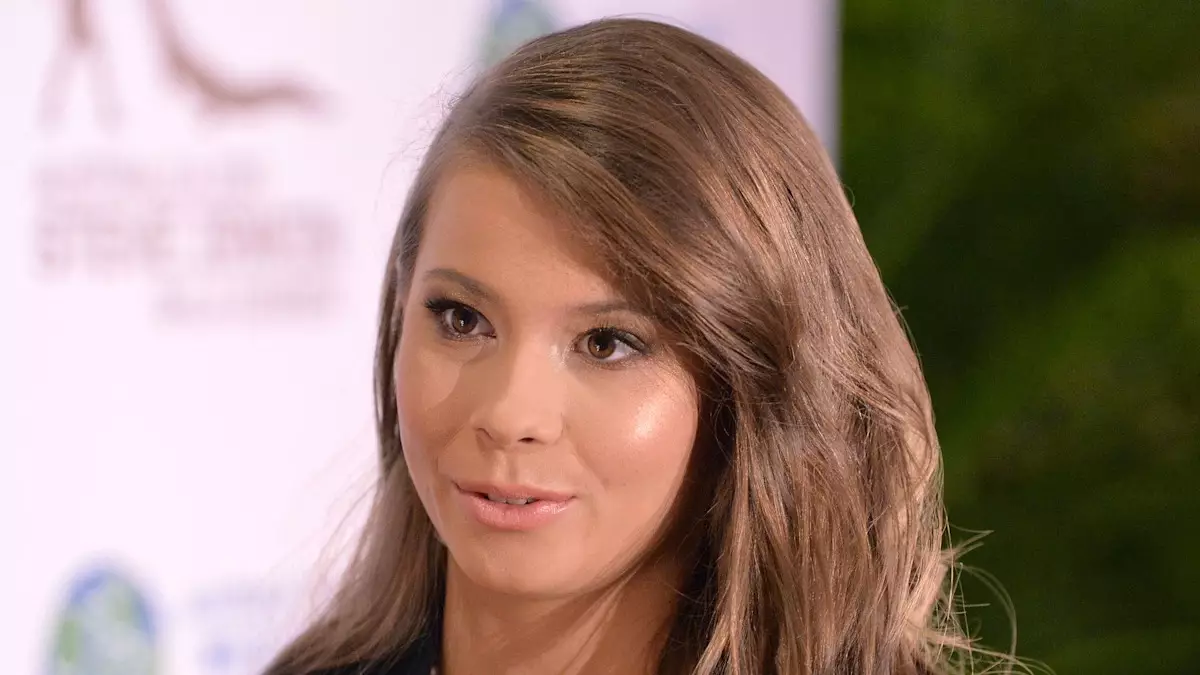Bindi Irwin’s recent revelation about her decade-long health battle has cast a spotlight on the silent suffering endured by many women worldwide. The 26-year-old wildlife conservationist, known for her resilient spirit as the daughter of the legendary Steve Irwin, has opened up about her experience with endometriosis—a condition that deeply affected her daily life. Through her candid discussion on the podcast “A Life of Greatness,” Bindi provided an unfiltered glimpse into her struggles with persistent pain, debilitating fatigue, and severe emotional distress.
For a whole ten years, Bindi contended with symptoms that led to frequent vomiting and pervasive anxiety, often leaving her feeling as if she were trapped in her body. Her assertions that her struggles were largely unrecognized by those around her reveal a broader societal issue: the tendency to dismiss women’s health concerns. Bindi articulated that without proper understanding from medical professionals or society at large, she often felt misunderstood, carrying the weight of her ailments in isolation. This lack of awareness among healthcare providers could lead to underdiagnosis or misdiagnosis—a prevalent issue for millions of women with similar conditions.
Bindi’s journey to her diagnosis of endometriosis was fraught with frustration and uncertainty. Despite enduring numerous medical tests—including CT scans, MRIs, and blood tests—she found no answers to explain her suffering. The narrative leaves an indelible mark on the audience’s understanding of the complexities surrounding women’s health, emphasizing how often women’s symptoms are trivialized as mere “woman problems.” The glaring lack of recognition concerning conditions like endometriosis must be addressed if women are to receive the care they genuinely need.
Remarkably, it took years of persistence for Bindi to finally receive a proper diagnosis. Upon learning about her endometriosis, which involves the growth of uterine-like tissue outside the uterus, she underwent surgery that revealed the presence of over 30 lesions. This stark reality not only showcases the physical challenges posed by the condition but also underscores the mental and emotional toll that such prolonged suffering can exact on an individual.
Integral to Bindi’s journey was the steadfast support of her family. As she spoke about her husband Chandler Powell and her mother, Terri, alongside her brother Robert, it became clear that even amidst her self-doubt and the persistent pain, she had a team ready to advocate for her. Their unwavering presence was vital in her battle against a disease that often feels isolating. Bindi’s acknowledgment of her family’s fortitude reflects the importance of having a support system when facing chronic health issues.
This aspect raises an important conversation about the prevalence of isolation among those suffering from unseen illnesses. Many individuals may not have the same level of support and thus navigate their struggles alone. Bindi’s testimony advocates for a collaborative approach to health concerns, urging others to seek allies who can help them fight for the attention their conditions deserve.
Her experience as a mother to her daughter, Grace, served as an awakening for Bindi to seek the medical care she had previously neglected. The transition into motherhood is often a period of profound self-reflection, and for Bindi, it became a compelling impetus to confront her health challenges head-on. In her words, “I have to do something,” resonates with many who find their health struggles overshadowing their roles as caregivers and nurturers.
Bindi’s openness about how her health impacted her ability to parent is both relatable and poignant. For many navigating similar journeys, those feelings of inadequacy can be heavy burdens to bear. The realization that one’s health is intertwined with the responsibilities of parenthood can act as a powerful motivator for change.
While Bindi recognizes that there is no definitive cure for endometriosis, the strides made through surgery have significantly enhanced her quality of life. Her public discourse around the condition fosters awareness—an essential step in empowering other women to seek help. By sharing her narrative, Bindi not only raises awareness about endometriosis but also encourages women everywhere to share their experiences, advocating for better understanding and treatment within the medical community.
Bindi Irwin’s story serves as a critical reminder of the power of voice, advocacy, and the necessity of compassionate healthcare. Through her journey of pain and healing, she exemplifies the strength of vulnerability and the importance of community support, echoing the call for both awareness and action in the face of women’s health issues.


Leave a Reply